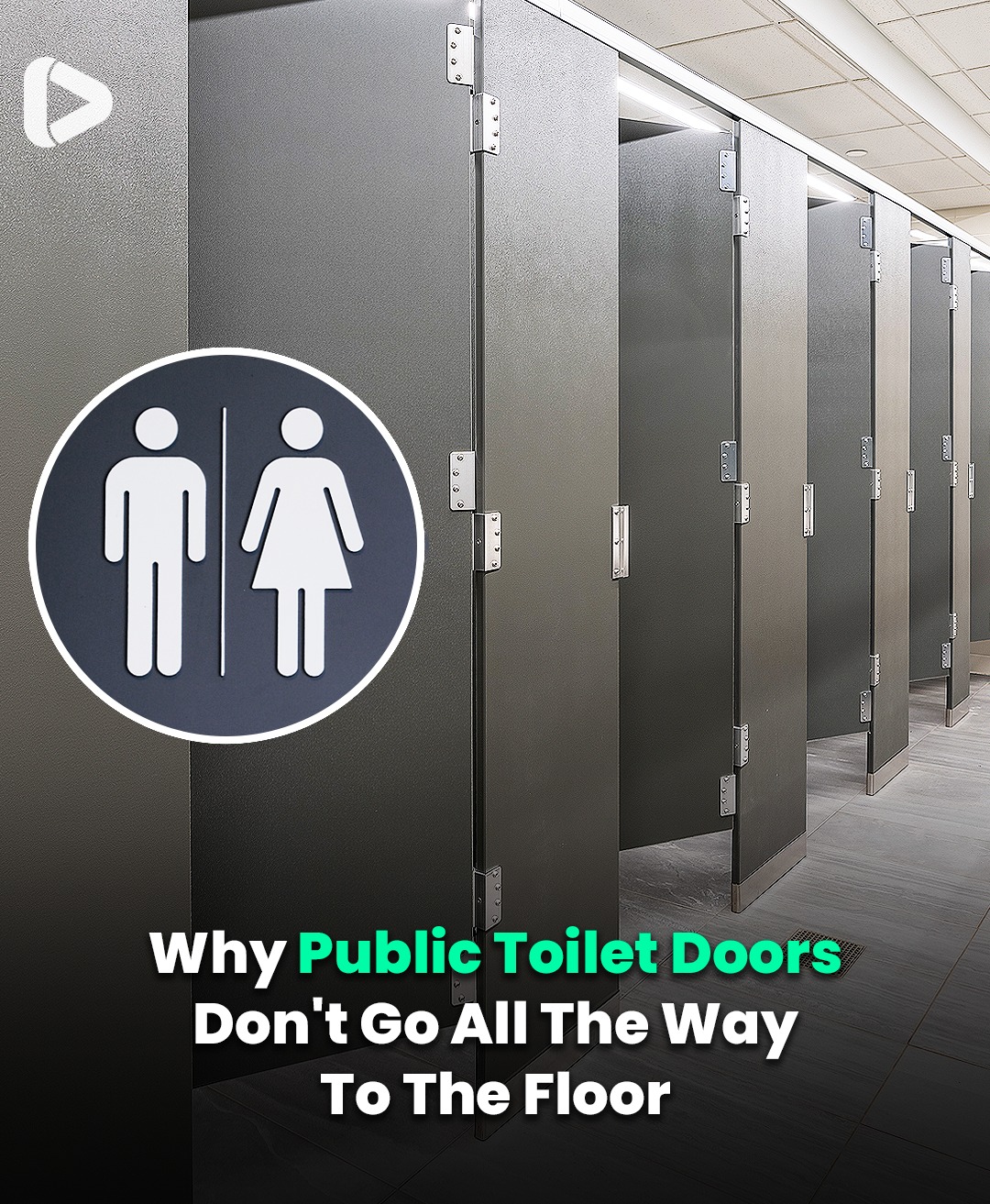When you enter a washroom, one of the first things you may notice is that the loo doors don’t extend to the floor.
It may seem an unusual design choice, however, it serves several important purposes.

TikTok creator @mattypstories, known for sharing lesser-known facts, has gone viral after explaining why it’s a common sight in public restrooms.
His video begins: “You’ve probably wondered at one point or another why bathroom doors don’t go all the way to the ground. But there are actually many logical reasons why they do this.”
Alongside Matty’s finding, WC Portables has shared the many purposes behind the gap.
Check out seven reasons why restroom doors don’t touch the floor below:
1. Safety
Matty explains that one of the primary reasons is safety.
The gap allows for a quick assessment of the situation and a point of entry if someone were to fall unconscious or experience a medical emergency inside a stall.
It also allows a user to escape the stall if the lock on the door becomes jammed – although it’s not ideal to be crawling on a public restroom floor, it’s much better than being trapped in such a tight spot.
2. Improves ventilation
It may go without saying but public restrooms can be breeding grounds for unpleasant odors and bacteria.
The gap at the bottom of the stall doors promotes better air circulation, helping to maintain a fresher environment.
WC Portables explains: “It helps your toilet experience become bearable. Without the gap, the odor is sustained in a stall and becomes unbearable to subsequent users.”
3. Enhanced cleanliness
A gap in stall doors can make it a little easier to maintain the cleanliness of a public restroom.
It allows custodial staff to clean the floors more thoroughly and efficiently.

4. Cost-effective
From a construction and maintenance perspective, shorter doors are more cost-effective.
They require less material to produce and are easier to install.
These doors are also less likely to suffer damage since they don’t touch the floor, reducing the frequency and cost of repairs or replacements.
Matty adds: “It’s a lot cheaper to buy a door that has part of it cut off than the full door itself.”
5. Prevents bad toilet habits and behavior
The gap at the bottom of the doors helps deter inappropriate behavior, such as graffiti or vandalism, as it increases visibility.

6. Easier to determine availability
In busy public restrooms, particularly in places like airports, malls, or stadiums, it’s essential to manage efficiency.
The gap allows people waiting in line to see which stalls are occupied without knocking or peeking through gaps.
This visibility helps reduce wait times and frustration for users.
7. Speeds up queue
Finally, individuals are much more likely to ‘wrap up’ their toileting needs if a gap allows people to listen to their business.
“Toilets with doors of this nature could negatively impact people’s privacy,” WC Portables adds.
Related Article: Doctor Issues Warning Against Flushing Toilet With The Lid Up
Related Article: Vet Explains Why You Should Never Flush Your Dog Or Cat’s Poop Down The Toilet

Viral
Woman Uses Dating Apps To Stay At Men’s Houses After Suddenly Becoming ‘Homeless’
A woman who suddenly found herself ‘homeless’ says she uses dating apps to stay at men’s houses as she believes she’s too hot to pay rent.
In an era where technology plays a part in every aspect of our lives, an unexpected crossover between dating apps and housing solutions has emerged.
A woman has gone viral after taking an unconventional tactic to avoid being homeless, sparking a mixed reaction on social media.
Instead of turning to dating apps for love, she’s seeking shelter to avoid soaring rent prices.

Rent prices are escalating globally and young people are struggling due to high rents, poor living conditions, and difficult landlords.
It’s even more problematic for self-employed individuals, who often face additional hurdles like large upfront deposits.
Enter Emily Webb, 25, from Australia‘s Gold Coast.

The Aussie has devised an unconventional solution to avoid being homeless, describing it as her ‘pretty privilege.’
On TikTok, Webb reveals she’s using dating apps like Hinge to secure nightly accommodations.
She explains: “I can’t believe I’ve been wasting my money on rent all this time. Life hack: if you’re hot, don’t ever pay rent.”
Webb notes that she doesn’t disclose her situation to the men, saying: “I don’t usually tell them – I don’t want to put pressure on anyone. I don’t mention that I’m homeless and I don’t think I look homeless.”

Webb’s confession has sparked a heated debate online, with some criticizing her for exploiting pretty privilege while others have expressed concern for her safety.
“In times of crisis, you do what you have to do,” one TikToker says. “She found a way to keep a roof over her head without compromising her safety or dignity.”
Another adds: “This is kinda genius…”
Others are criticizing her approach, arguing it could set a dangerous precedent.
“It’s a risky move,” worries one viewer. “Relying on strangers met through dating apps for shelter can be extremely unsafe. It’s a temporary fix, not a solution.”
In agreement, a second says: “This is just ridiculous. The dangers here are unreal.”

In an interview with News.com.au, Webb defends her actions and says her current strategy is not a permanent solution.
She explains that despite having a profitable OFs account with over 100,000 followers and being able to afford around $1000 weekly for rent, she’s struggled to secure housing even when offering up to a year’s rent upfront.
Webb adds: “You’re only single and hot once and I love taking advantage of it anywhere it can.
“I’m just applying for apartments and it gives me the space to be picky. I just realized I’m fine without a place. I feel like any day I could have a rental. I’m not extremely stressed.”

